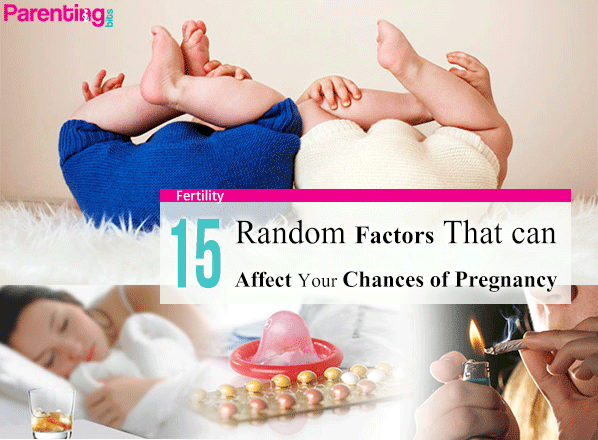15 Random Factors that can Affect your Chances of Pregnancy
You may be trying your best to get pregnant but some times it just doesn’t happen. You try syncing with your cycle and hope for the best. Sometimes, it just so happens that there are some random causes and factors that you do not take into consideration.
Here is a list of factors that you easily overlook which can help you to win the odds of you getting pregnant.
1. The Idiot Box Effect
According to a study in the American Journal of Epidemiology, men who watch five hours of TV or more per day have a lower sperm count than those who don’t watch TV at all.
2. Take a Breather
By a study in the Annals of Epidemiology, women who reported above-average stress levels were 45 percent less likely to conceive. This a major problem and mediation can help you beat those blues.
3. Your Household Chemicals
We utilize many chemical products containing pesticides, pollutants, and various other chemicals unknowingly. These can greatly hamper your chances of getting pregnant by up to 29 percent, according to one study in Environmental Health Perspectives. Both the men’s and the women’s exposure mattered. This may be due to the effect of the chemicals on our hormones.
4. Which Birth Control you’ve Previously Taken
By taking birth control, it reduces your chances of getting pregnant. Some can have an effect that could last for up to two years. If you want to have kids in the near future, it is advisable to be off the birth control program and consult with your doctor.
5. His Appearance
Surely weird but guys with more masculine appearances tend to have lower sperm quality found by one study in the Journal of Evolutionary Biology.
6. His Choice of Underwear
If your man prefers briefs over boxers, this ones for him. Sperms find it difficult to thrive when the temperature gets high. Wearing a tight underwear does not help your cause in any way. Boxers can be a great alternative.
7. Your Weight
It’s a misconception that only overweight-obese women find it hard to get pregnant but even the really thin ones do. It’s best to get your weight into the optimal range and maintain a healthy BMI.
8. The Timing of Your Romps
Of course, the logic is simple. The more you have sex, the more likely you are to get pregnant. But interestingly, how far apart you space the sessions also matters. One study presented at the European Society of Human Reproduction and Embryology meeting shows that the chances of artificial insemination working almost triples when using the second sperm sample collected within an hour.
9. Smoking
If you’re an active smoker or your partner is (passive smoking is as harmful), things can get difficult for you. Smoking is injurious to health and that also affects your odds. It’s best that you and your quit smoking as soon as possible, to make true your cherished wish.
10. His Laptop Usage
A Fertility and Sterility study examined sperm samples placed underneath laptops, and 25 percent of the sperm stopped swimming, while only 14 percent of sperm placed safely away from laptops did. As mentioned above too much heat is not your sperms’ best friend.
11. If You’re Still Breastfeeding
Your chances of conceiving one baby while you’re nursing another are quite low, but not zero. Kinda like nature’s way of modulating birth but it’s not a hard and fast rule. Exceptions are possible.
12. Alcohol
Heavy drinking, more than one drink a day for women has been linked to an increased risk for ovulation disorders. Also, a 2004 Swedish study that tracked more than 7,000 women for 18 years found that the heaviest drinkers were more likely to have sought out fertility treatment.
13. Extreme Exercise
A 2012 study published in Fertility and Sterility found that normal-weight women who exercised vigorously for more than five hours a week had a harder time getting pregnant.
14. Thyroid Disease
A 2015 study published in The Obstetrician & Gynecologist supports the theory that thyroid disorders can contribute to ovulation and pregnancy problems and suggests that women having trouble conceiving be tested for over- or underactive thyroid.
15. Caffeine
A 2011 study from the Nevada School of Medicine found that caffeine interferes with the muscle contractions that help eggs travel from the ovaries and through the fallopian tubes to the womb, while a 2012 Danish study revealed that drinking five or more cups of coffee a day may cut a woman’s chances of successful in-vitro fertilization by 50%. Some studies suggest caffeine plays no role in fertility. Either way, remember that moderation is key. It’s best not to overdo it.

